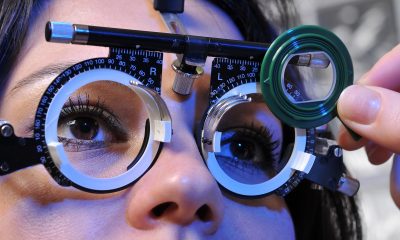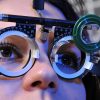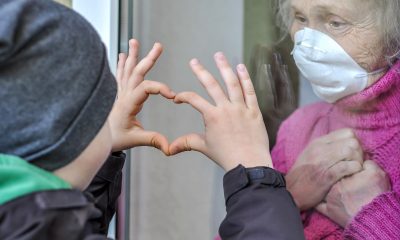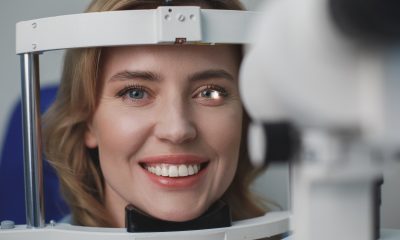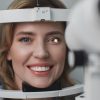Health
How Do the Changing Seasons Affect those Hospice Patients with Dementia?
When the hospice carers in Burbank, Glendale, and Pasadena have to turn back the clocks which result in the days getting shorter, many patients, and even visitors, start to feel unsettled and miss the loss of daylight. However, the impact can be exhaustive for dementia patients undergoing hospice care.
What is Dementia?
Dementia is a broad term for a specific set of brain illnesses, such as Alzheimer’s Disease. It involves memory loss and the decline of cognitive skills. Dementia is a progressive illness of the brain that hinders a person’s ability to remember things, think logically, and do everyday tasks. Commonly, it affects seniors, although younger people sometimes get it as well.
Common symptoms of dementia include memory issues, confusion, reduced concentration, alterations in personality or behavior, apathy, depression, anxiety, and mood swings. There are three main stages of dementia, and it’s critical to incorporate the right type of dementia care as each stage progresses. Caregivers at Faith & Hope offer high-quality, professional assistance to seniors with dementia because our caregivers have received specialized training for dementia care and memory care.
Hospice professionals in Burbank, Glendale, and Pasadena explain to us a symptom known as “sundowning.” This occurs when a person with dementia displays increased signs of agitation or confusion, and it is a prevalent and disruptive symptom. Unfortunately, when the colder months are here, sundowning can get worse.
If your loved one undergoing hospice care has dementia, it’s crucial to understand how the changing seasons can influence mood and behavior.
What’s Sundowning?
When the seasons start to change, we get a lot less sunlight during daytime hours. For many people, this may seem like a normal development. Nevertheless, the increased amount of darkness can lead to confusion and irritability for dementia patients. Typically, sundowning starts to reveal signs when the sun has set, disrupting the person’s circadian rhythm. It’s critical to remember that sundowning is not an illness per se but a group of symptoms that happen during this transition. Despite everything, even the tiniest alterations in sunlight, such s a glare from an early setting sun, can result in flare-ups. The effects of sundowning could also escalate when backed with:
- Too much caffeine
- Poor sleep or fatigue
- Poor lighting within the home
- Sinuses or urinary tract infection
- An increase in shadows around the interior or exterior of the home
How To Notice The Signs
Typically, seasonal changes lead to seasonal affective disorder (SAD), but the effects of dementia patients who are already dealing with cognitive disturbances are much more relentless. Any alteration in season or routine can be bothersome to a person with dementia, but the shift with Daylight Savings Time (DST) is particularly forceful.
Sundowning has various signs and usually happens in the late afternoon and evening. When we head towards the colder months, we witness a significant increase, say those staff giving hospice care in Burbank, Glendale, and Pasadena.
Symptoms include:
- Sleep disturbance
- Confusion
- Wandering
- Depression
- Increased agitation, irritability
- Pacing
- Restlessness
- Shadowing
- Hallucinations
- Violent or Paranoid Behavior
The good news is that these symptoms are short-term, and cognitive function is usually restored in the spring season.
Plus, there happens to be a higher risk for personal injury. The confusion linked with sundowning can result in dangerous situations for seniors, particularly when it comes to wandering. If an older person affected by sundowning walks outside during the winter months, they may be improperly dressed, leading to hypothermia.
How To Deal With Sundowning Symptoms?
When dealing with the effects of changing seasons, it comes down to trial and error. Similar to establishing a routine, you may find along the way that some methods work like a dream while others can even get off the ground. To start with:
- Ensure that you put on as many lights in the house as possible before the sun begins to set.
- Try changing daily plans to guarantee that appointments and visits occur in the sunny daytime hours.
- Keep away from sleep until the evening hours to reduce nighttime restlessness.
Getting ready for sleep may mean lessening on noises or stimulating activities. Additionally, you may want to try soothing white noise machines, mild sleep aids such as melatonin, or even essential oils. When making any alterations like this to your health and routines, it’s vital to consult a physician. Keep in mind that there isn’t one perfect approach, but a trusted doctor can provide you with the information you need to oversee these symptoms safely.
Living with dementia is painful and difficult for the affected person, their loved ones, and their caretakers. Sundowning can add on further frustration for anyone involved but understanding the phenomenon and how to detect early signs, you can help provide a greater quality of life for anyone who has dementia.
Make Sure To Enjoy The Sunnier Days
When the sun is shining, make sure that your loved one with dementia (and you) goes out and enjoys it. When spring is coming around th corner, you will notice the increased sunlight and the warm weather brings on increased activity. Many caregivers at Faith & Hope take on this opportunity and encourage patients to step outside and soak up the sunshine and engage in physical activity. This could be anything from a simple walk or some intense gardening. The people at Alzheimer’s Association reiterate that such activity is a fundamental part of a memory care plan, as physical activity is connected to a decreased risk of cognitive decline.
When you spend time outside, a person’s mood improves, and they get better sleep. Sunlight helps boost Vitamin D levels and helps regulate melatonin levels for sleep. You can get all this with a walk around the facility during the day, or even sipping a cup of tea on the patio can help promote a person’s day and provide them with a more restful night’s sleep.









